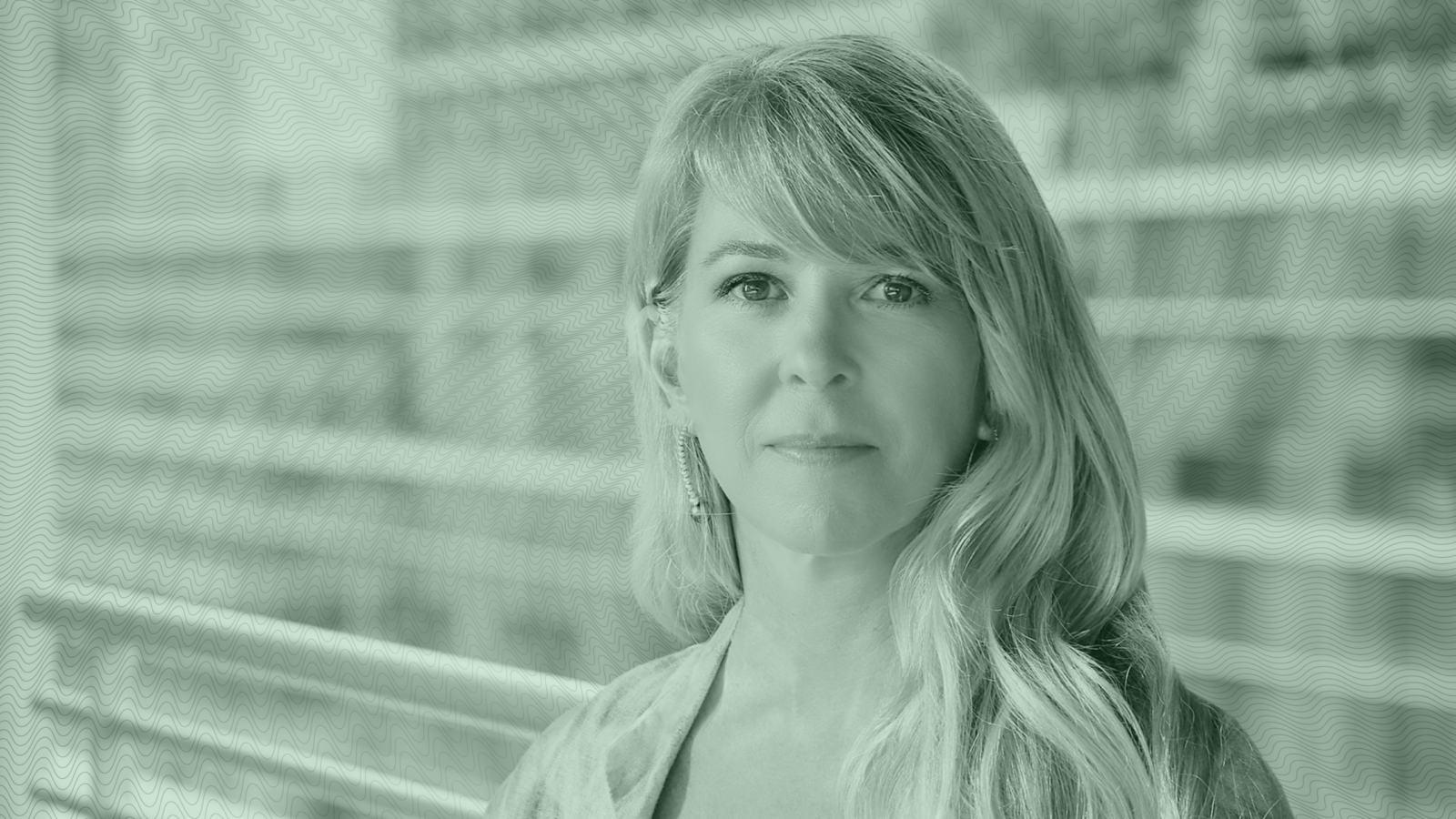Good morning.
If you can’t do the time, don’t do the crime.
Bill Hwang, the founder of the family office Archegos Capital Management, was sentenced to 18 years in prison yesterday after his conviction in federal court on charges of borrowing capital from banks and lying about the positions it took in stocks. At one point, the value of his portfolio reached as much as $36 billion. But when stocks including ViacomCBS and Warner Bros. Discovery began tumbling in 2021, Archegos imploded as banks lost a collective $10 billion. It even helped usher in the collapse of Credit Suisse.
Now, 18 years doesn’t sound too bad when you remember Bernie Madoff got 150 for his ponzi schemes. That’s one record Hwang’s happy he didn’t break.
Schwab’s Liz Ann Sonders on Little Birds and the ‘Temperamental Era’

As they say, everything in moderation.
With some notable exceptions, the last three decades have been largely smooth sailing for global markets, propped up by generally low inflation, milder volatility and fewer recessions. Starting in the early ‘90s, the so-called Great Moderation also benefited from globalization that offered lots of cheap labor. But for Liz Ann Sonders, Charles Schwab’s Chief Investment Strategist, the good times have come to an end. “It was an era of geopolitical stability and not a lot of economic uncertainty,” she said. “That’s decidedly in the rearview mirror.”
The new economic landscape is shaping up to look ominously similar to the volatile 1970s, a time that Sonders coined “The Temperamental Era.” The famed strategist is already seeing upticks in volatility across economic gauges, as well as an increase in wages. “I don’t know whether the name’s going to stick,” she said, “but I’m going to use it.”
Sonders sat down with Advisor Upside on the sidelines of the Schwab Impact conference on a rainy day in San Francisco.
AU: How can advisors prepare for a new ‘Temperamental Era?’
Sonders: Even smaller, individual investors don’t have to take a simplistic 60/40 approach anymore. There’s easy, abundant, and cheap access to broader asset classes — whether it’s commodities, currencies or alternatives. For advisors, that can help bring other asset classes into the mix and find those non-correlated relationships.
But if a little bird from the future landed on my shoulder and gave me a 95% probability of what equities and bonds were going to do … and I was talking to two different investors, I would tell those investors two entirely different things. We have to stop the cookie cutter-ing of asset allocation. From my perch, there’s no one right answer.
What’s nobody talking about?
It’s not what we know that matters. Everybody wants to try to know what the markets are going to do. I’m asked that all the time. The honest answer from anybody, even from a pontificator like I am, should always be: I don’t know. It doesn’t matter what you know, because it’s just guessing the future. What is never talked about, or even asked about, is the stuff that matters most.
A financial TV network has no interest in having me on to talk about the benefits of diversification within and across asset classes. And the beautiful discipline that is periodic rebalancing. It’s like: Snooze, snooze. Instead it’s about telling investors when to get in or get out — which neither getting in nor getting out is an investing strategy. That’s just gambling on two moments in time. The questions that everybody asks are the wrong questions.
How might the new administration impact the economy?
I have no idea … honestly. The tail risks this time around are more extreme than usual. For the most part, tariff and immigration policies — certainly things like deportation — can be done via executive order, so they don’t have to go through the Congressional approval process. What we don’t know is if we should take [Trump] at his word? It is really hard to argue against the notion that the combination of those two policies raises inflation and lowers growth.
We have to remember the trade war in 2018. It was sort of a trade policy by tweet. I would wake up every morning and go on my Twitter feed and say: ‘OK, what are we going to read today?’ So, we’re all at the mercy of unconventional policymaking.
What Do Psychology and Technology Have in Common?
They are essential weapons in a financial advisor’s arsenal for success. As any good wealth management professional knows, the advisor-client relationship is the single most important aspect of a long-lasting practice.
A happy client loves two things when it comes to managing their money – an easy-to-use client portal (technology) and an advisor who gets them (financial psychology). So how can you, the advisor, nail the perfect combination of implementing high-quality technology and financial psychology techniques?
eMoney has laid out exactly how with their guide “How Combining Technology and Financial Psychology Transforms Client Outcomes”.
New research shows that only 17 percent of advisors are tapping into this unstoppable combination, but those who do are experiencing drastically improved motivation, trust, loyalty, satisfaction, and number of referrals amongst their clients.
Download the step-by-step guide and improve your client relationships today.
Robinhood Targets Wealth Management with TradePMR Deal

Robin Hood famously stole from the rich and gave to the poor, but Robinhood, the free trading app, is looking to court them both.
Wealth management is one of the fastest growing sectors in financial services, and the Menlo Park, California-based investing platform is the latest to enter the field. This week, Robinhood signed an agreement to acquire TradePMR — a provider of custody, technology, and portfolio management tools to registered investment advisors — for $300 million, according to a statement. The Florida-based company has more than $40 billion in assets under administration and works with roughly 350 firms.
The move could help Robinhood tap into the Great Wealth Transfer and solidify its place in the $7 trillion RIA market.
Getting in the Game
Robinhood made its mark as a discount brokerage for retail investors. Now it wants to connect its 24 million users with advisors, and in the process, build out its wealth management services. It also plans to build a platform for advisors and clients to view their managed assets alongside their self-directed investments. “RIAs will be able to offer more inclusive financial solutions that cater to a wider demographic,” Robb Balwdin, TradePMR CEO, told The Daily Upside.
The competition is already quite fierce with Charles Schwab, Fidelity, and Pershing controlling the majority of the market. Robinhood plans to stand out by targeting younger investors, who are less affluent but poised to accumulate wealth:
- The company said it will create a “best-in-class” referral system, so users can easily find RIAs.
- After its purchase of Pluto Capital this past July, Robinhood also may explore creating a robo-advisor next year.
The timing is ideal for Robinhood, said Forrester senior analyst Vijay Raghavan. The $84 trillion is being transferred between generations and the company’s user base skews young. Some 75% of its customers are Millennials and Gen Zers. “This cohort also began investing earlier than prior generations, they are digitally savvy, and are reaching an age where they will need more financial advice,” he told The Daily Upside.
Validate My Parking. Many Robinhood users also fall into what Forrester calls “validators.” They’re investors who gather their own information, make independent decisions, and tend to deal in riskier securities like cryptocurrency and options, but still want validation from experts.
The group is also the largest and youngest segment of US investors, so Robinhood’s customer base is a valuable one, Raghavan said. He expects more discount firms like Robinhood to make similar moves into wealth management.
Advisors Are Still on the Fence About Crypto. Should They Be?
Digital assets have become a significant class for next-generation wealth builders and inheritors, but some advisors are still on the fence about offering crypto to clients. Should they be? In a recent Bank of America survey, investors under the age of 43 were asked to rank the asset classes with the greatest opportunities for growth. The top three answers might surprise you:
- Real estate topped the list at 31%, followed closely by digital assets and crypto at 28%, and private equity at 26%.
- In fact, more than 7 of 10 investors said it’s impossible to achieve above average returns with stocks and bonds alone.
The same holds true if you ask ETF investors across demographics which asset class they plan to invest in next year. A Charles Schwab study found the top three choices were U.S. equities at 55%, digital assets and crypto at 45%, and bonds and fixed income at 44%.
Extra Upside
- Going Up: S&P 500 could reach 6,500 by the end of next year, Goldman predicts.
- Bring an Umbrella: Bridgewater and State Street partner for ‘All Weather’ ETF.
- Two Sure-Fire Ways To Improve Client Loyalty & Satisfaction: technology & financial psychology. If you want to keep happy clients for a lifetime, your practice needs to be tech-forward and your advisor-client relationships need to incorporate 6 crucial financial psychology techniques. Learn exactly how to combine technology and financial psychology to transform your business.*
* Partner
ICYMI
- Trump Trade: Fixed income is on shaky ground heading into second Trump term.
- Getting Up There: Advisors can look to credit scores to catch cognitive decline in clients.
- Ring in the New Year: Forrester has three major predictions for advisors in 2025.
Advisor Upside is edited by Sean Allocca. You can find him on LinkedIn.
Advisor Upside is a publication of The Daily Upside. For any questions or comments, feel free to contact us at advisor@thedailyupside.com.

